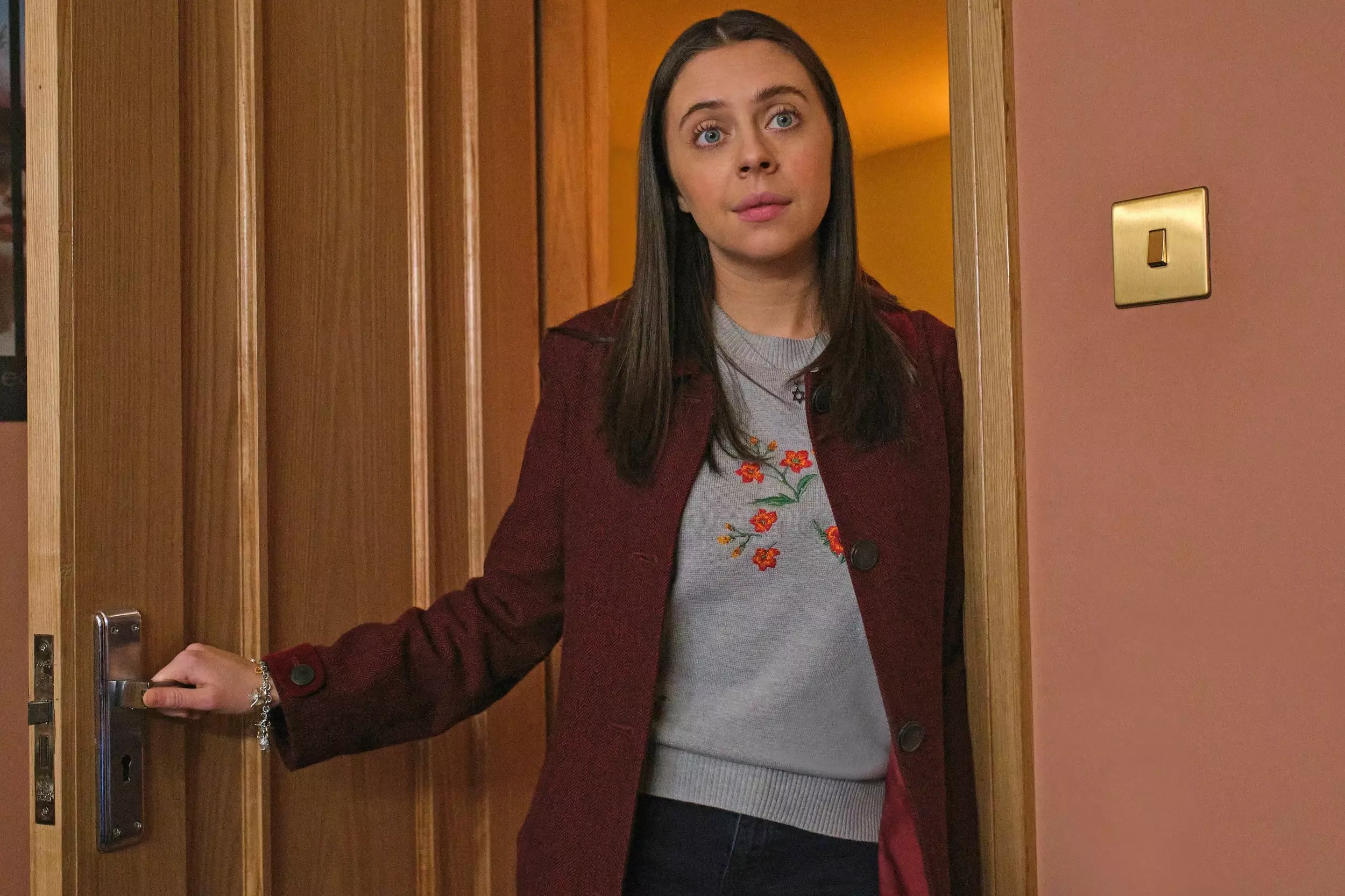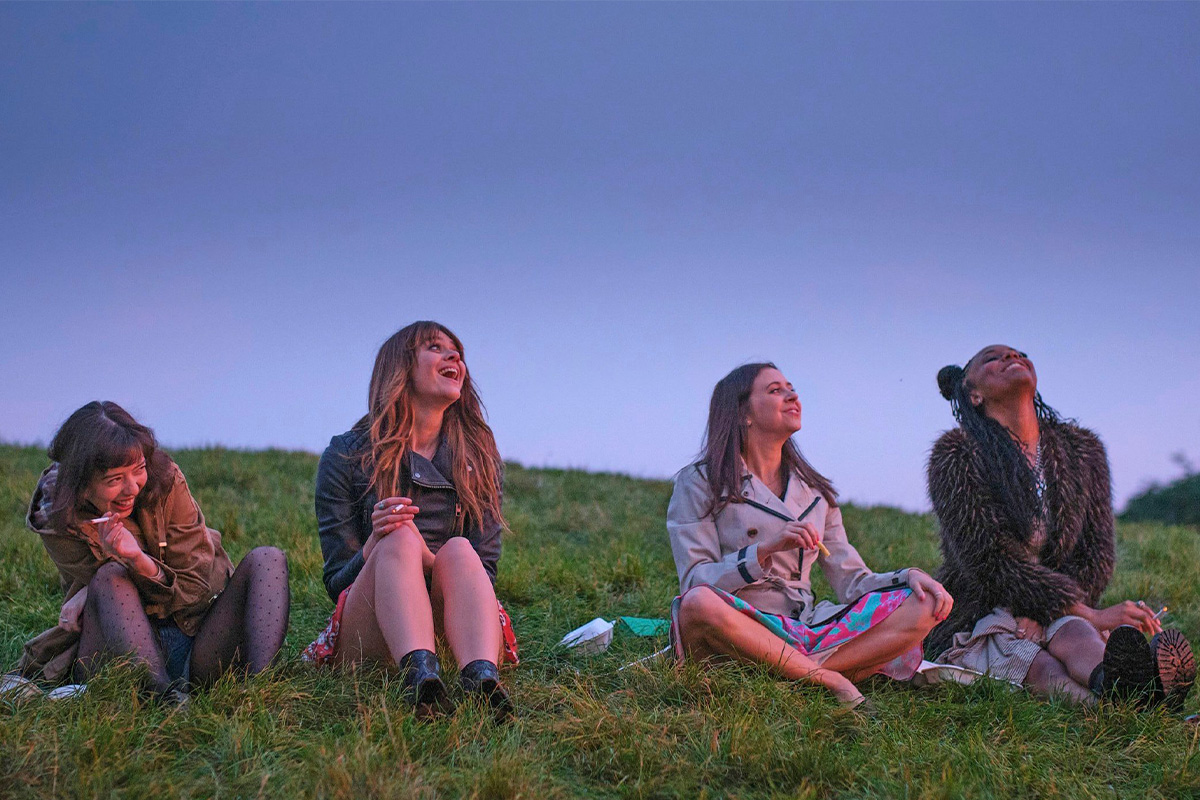While watching the first episode of the BBC’s TV adaption of Dolly Alderton’s wildly popular memoir “Everything I Know About Love,” I was shocked to see Jewish queen Bel Powley’s character proudly wearing a silver star of David necklace. This wasn’t just a throwaway bit: She wears the necklace in almost every scene she’s in throughout the entire seven-episode series.
With the alarming rise of antisemitic attacks in recent years, many of us have had to reconsider if we can safely wear outwardly Jewish symbols in our daily lives. The star of David is the most recognizable Jewish symbol, seen in both the best and worst moments of Jewish history. Seeing a Jewish actress portray a Jewish character who is proud of her identity on a major platform like the BBC feels like the sweet little victory we need right now.
Bel Powley, who rose to fame in 2015 playing Princess Margaret in “A Royal Night Out” and American teenager Minnie in “The Diary of a Teenage Girl” (for which she was awarded the Chopard Trophy for rising talent at the Cannes film festival), has long been a fan of Alderton’s book. Powley told Cosmopolitan UK that when she learned the BBC was adapting the memoir into a TV series, she had already been “planning for years” how to land the part of Birdy. Birdy, like Powley, is from a Jewish family in London, and Powley particularly resonated with the character’s Jewish upbringing. On the series, Birdy is the best friend to main character Maggie (Emma Appleton), and the two have been friends since childhood: The second episode offers flashbacks to the two friends rehearsing and then performing a dance at Birdy’s bat mitzvah.
The series does not shy away from Birdy’s Jewish identity. Another episode has Maggie and Birdy’s friendship struggling after Birdy gets a boyfriend, Nathan, and the feeling of Birdy slipping away leads Maggie to act out. On a trip home, she tells Birdy’s mom Nathan is not Jewish. In response, Birdy’s mother yells, “Well, I cannot wait to tell grandma who was smuggled out of Austria as a baby with every piece of family jewellery in her nappy!” To which Birdy shoots back: “Jesus. Every time you tell this story there’s another item in the nappy. It’s like Mary Poppin’s handbag. What else was in there? The challah plate? The kiddush cup?”
Of course, Birdy and her mother make up by the end of the episode, but not before she reminds her daughter, “we are survivors,” implying that maintaining their family’s Jewish identity is paramount for future generations. Birdy wonders why there always has to be so much “trauma” around being Jewish. It’s an interaction that is particularly well-done, allowing viewers to understand the mother’s reaction and also agree with Birdy — there is a lot of trauma around being Jewish. It is an especially meaningful scene to have on such a prominent show at a time with increasing antisemitism, as it shows both Birdy and her mother as proud Jewish women who are aware that this comes with a lot of baggage. And the flashbacks to Birdy’s bat mitzvah and the near constant presence of her silver star of David necklace ensure that the scene doesn’t feel ad hoc, as the viewer has no doubt about Birdy’s religious identity, with or without Nathan.
These questions of identity, love, and growing up are woven throughout the series, which includes a larger and more diverse cast of friends than Alderton’s memoir, and attempts to address the financial and white privilege that forms the backdrop of her original story. While it occasionally misses the mark, the overall message is that female friendship could outduel a romantic relationship any day, and that friendships are stronger when the hard questions come to the surface.
For example, upon moving to London, Maggie is almost instantly offered a job to work as a story producer on a popular reality show. She cannot understand why Amara (Aliyah Odoffin), continues to work her boring office job when she wants to be a dancer, or why Amara receives racist messages from men in an episode about how apps changed the dating game (the series takes place in the early 2010s and Tinder joined the app store for better or worse in 2012). Amara finally confronts Maggie in the penultimate episode, trying to explain to her that as a white woman she will never really “get it.”

Of course, there is still a long road ahead to increase representation in the film and TV industry, but when the world feels like a dystopian novel come to life, sometimes seeing someone with shared life experiences on a major TV show can feel like a victory, just like knowing you’re not alone in struggling to decide which path to take in life. Watching a group of female friends go through the unavoidable growing pains of being in your twenties together is satisfying, fulfilling, even thrilling. In both the book and the TV series, Dolly Alderton lays it all out: “Nearly everything I know about love, I’ve learnt from my long-term friendships with women.”
“Everything I Know About Love” will be streaming on Peacock starting August 25, and is currently available on BBC iPlay.



